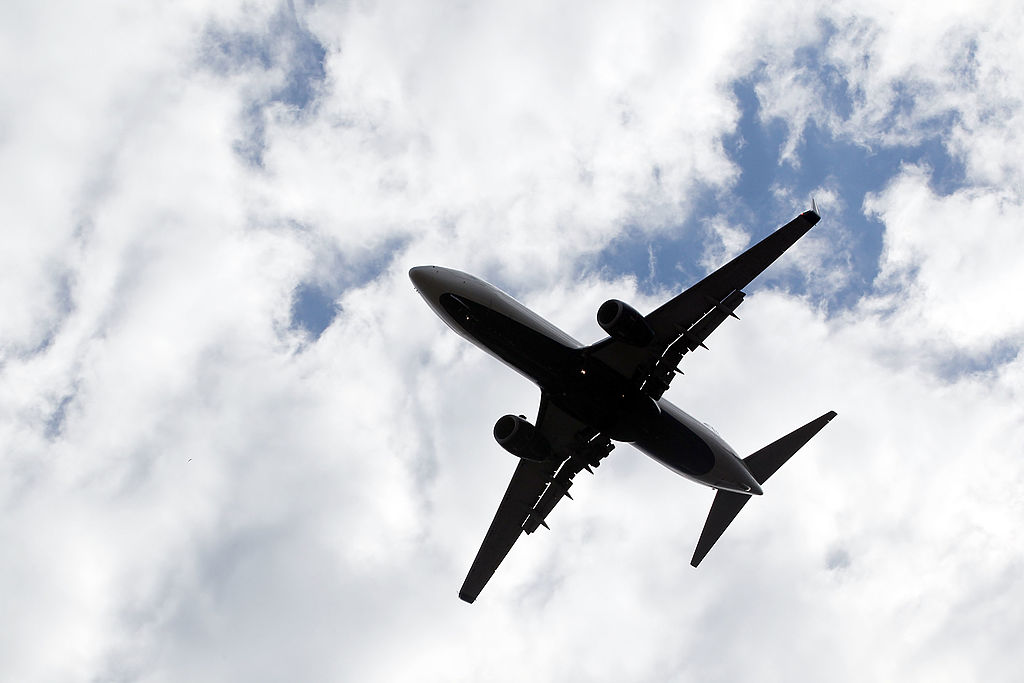A decade ago, when I first started contributing to the New York Times’s annual “52 Places to Go” list, the top user comments were about the destinations: Why was Calcutta chosen but not Chattanooga? This year, in a sign of the times, the most popular comments suggest that we should all just stay home to save the planet. The climate-obsessed among us are falling out of love with travel, particularly with the idea of exploring far-off places where your carbon footprint is greater. If their movement gains steam they won’t save the world, but they might well wreck the global economy and deprive themselves and others of much-needed perspectives and experiences that make the world a better place.
The email I received from the Times travel editor inviting me to submit nominations for this year’s list encapsulates how conflicted many progressives now feel about travel. (Full disclosure: I contributed a nomination (Kuldiga, Latvia) that wasn’t chosen.) Many clearly still enjoy it but aren’t sure if it’s ethical because of the “climate crisis.” “It’s that time of year again, when we ask you to nominate destinations for our annual 52 Places to Go list,” she began. “This time, the request comes at the end of a crazy, disrupted summer for travelers, in which the effects of climate change made themselves clear in heat waves, wildfires and punishing rains.”
She went on to invite nominations for destinations where travelers could have a positive effect, citing places that suffered from recent natural disasters. “Are there destinations like them that could benefit from tourist dollars? Are there specific ways to spend those dollars that will do more good? Can you, at the very least, do less harm?” It was almost as though she was starting with the assumption that travel is a guilty pleasure, one that could perhaps be made less sinful if visitors became do-gooders by descending on down-on-their-luck destinations.
Surprisingly, only three of the short write-ups referenced climate change, suggesting that most of the freelance travel writers who submit the entries (and are paid $200 each for their efforts) aren’t ready to send themselves to the unemployment lines just yet. But the two comments most liked by readers suggested that travelers ought to feel guilty about their climate sins. The first, from a reader in Lehigh Valley, Pennsylvania, said, “Beautiful photos. Enjoy them and stay home.” She suggested the Times was to blame for inspiring readers to travel and suggested they “add environmental footprint info to particular destinations in travel articles.”
The second most popular commenter, a Bostonian, said, “It strikes me as peculiar to encounter the ‘52 Places to Go in 2024’ list immediately following a chart that illustrates the record-breaking temperatures of 2023. The juxtaposition is particularly noteworthy given the significant carbon emissions associated with air travel.”
Of course, it isn’t just Times readers souring on travel. In a solipsistic 10,000-word essay for Harper’s, detailing a Celebrity cruise last year, the writer Lauren Oyler insisted that cruises should be illegal due to environmental concerns. (Never mind the fact that this would devastate the economies of the Philippines, Indonesia and other large countries heavily dependent on cruise jobs.)
In 2021, I published a book called Mad Travelers about a young Brit who conned the world’s most traveled people. Most of the feedback was positive, but nearly all the negative reviews and emails I received were from readers who hated the mad travelers because of their jet-setting climate sins. A year later, my Outside magazine assignment (to chronicle a trip to Nagorno-Karabakh with the same mad travelers) was killed, because the editors concluded that too many readers would be offended by my compulsive-traveler friends, who were, as my editor put it, generating an outsized “carbon footprint during a climate crisis, all for the sake of checking off very arbitrary (travel) boxes.”
Unlike some, I’m not in the “let’s do nothing at all or buy bigger cars, live further from our jobs and eat more cheeseburgers just to spite the climate change activists” camp. But I’m a compulsive traveler who has seen its rewards, particularly from international travel, and I have no plans to slow down. The travel industry directly or indirectly employs an estimated 10 percent of the world’s population. In my hometown of St. Petersburg, Florida, business owners crave tourists — even the paranoid types from up north who roam our beaches with masks on.
Some activists propose that travel is fine as long as people stay close to home. I’m not opposed to exploring one’s own backyard, but you have to leave our increasingly homogenous country to truly escape and learn. International travel isn’t always a broadening, perspective-altering experience, but it can be. I gained a new perspective on the war in Ukraine, for example, while talking to the residents of towns on Russia’s borders with Finland and Lithuania last summer.
I know that I appreciate my American citizenship more every time I travel to developing countries; I think most Americans take our luxuries for granted. If Americans didn’t travel abroad, we’d have to rely solely on the media to formulate opinions about foreign lands and peoples, a dangerous proposition indeed.
I’ve been to eighty countries and though I don’t claim to understand them all well, I have a different perspective on them compared to places I’ve never been. International travel used to be celebrated by the left — they pioneered the Hippie Trail across Asia in the Sixties — and thankfully some still do. But we must remain vigilant — the travel scolds want us to feel guilty about venturing far from home when in fact, exploration is still life’s greatest university.
This article was originally published in The Spectator’s April 2024 World edition.


























Leave a Reply